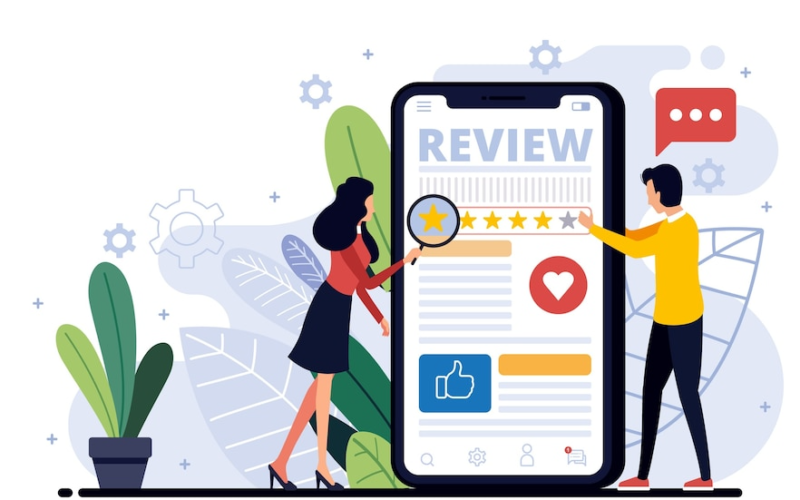
Introduction
We are pretty familiar with the biggest ‘rivalries’ of the age we live in. Be it Ronaldo against Messi or Nike versus Adidas, the best amongst us soar under competition. Similar to these, the digital and information age recognises the iOS and Android saga really well. Both were developed around the same time when smartphones were just beginning to gain popularity.
Android was developed Andrew E. Rubin, an American computer engineer and scientist. Currently, Android as an enterprise is owned by Google. This makes the story even more interesting. Apple and Google are two of the biggest names when it comes to IT companies. Microsoft, Facebook, and only a few others have the bragging rights to stand next to both of these.
Apple, started in a garage by Steve Jobs is also one of the better known mobile companies in the world. Although the company is also in the laptop and tablet space right now, mobile phones are still its forte. The M1 and concurrent series of processing chips has made it a strong contender against Intel as well.
We are, however, not here to talk about the hardware part of Apple or Google. Both Android and iOS are basically operating systems. These are the core mechanisms that are crucial to run all the operations in your hand-held devices. The same extends to PCs and laptops too. Applications run difficult use cases on these devices. The question stands in front of us – which platform or OS is better to launch and scale your mobile application on.
An app development company faces this dilemma on a regular basis. This has nothing to do with Geography as well. This is a global phenomena – an app development company in Australia or India has the same question to answer as one in the US or Europe.
Factors that determine the platform
To begin with, let us divide the problem into different categories – by parameters. Whether it is iOS app development or Android app development, there are certain things that you can look at to get to the final decision.
Please note that some large companies offering mobile app development services go for a ‘hybrid’ approach. This means that the same application is developed on both platforms. This app is then published on the dedicated app stores for both the operating systems. Whether the hybrid approach should be taken for all apps is also a question that can be affected by the parameters we are about to discuss.
These factors are:
- Location or country.
- Scope for monetisation.
- Audience.
- Budget.
- Maintenance.
- Features.
- The store.
Location or country
Most countries have a majority of people using either of these two operating systems. If the country you want to publish the app in is more inclined towards say, iOS, it makes sense to go for iOS app development. In Australia, an app development company faces a stronger conundrum – 55% of the market is held by Apple, whereas the rest is captured by Android. This means that Australia mobile app development services usually go for a hybrid approach if the other factors are comparable.
Scope for monetisation
This simply implies how much revenue the platform can make for a particular app. Although global statistics suggest that Android leads in terms of market share, it might not be useful here. Apple users are more likely to spend money through internal app purchases and for add-on content. The trend has been reported from all around the world including Australia. An app development company in Australia can make more money from an iOS app in the long term. This is true for every country in the world.
Audience
The target audience plays an important role in the platform you choose to develop your app on. People with medical or technical backgrounds prefer Android. Businessmen and sales executives prefer Android. It’s just how it is. The age of the target audience of your app plays a part too. If your app is meant for a younger group of people, go for Android – typically. First world countries like the US and Australia do not show much difference in the kind of OS different age groups use. For developing and underdeveloped nations like India, the younger crowd prefers Android simply because they are relatively cheaper.
Budget
Development on both these platforms have a cost factor too. Development on iOS is relatively cheaper as compared to Android. This also depends on the availability of labour – in this case, app developers. Android app development is comparatively difficult to pull off in most cases. iOS app development is done on Swift, an easier language to master. JAVA is used for Android app development which is time consuming and has a steeper learning curve.
Maintenance
Extending to the previous point, maintenance of the app is a crucial part of any app’s lifespan in the market. How much the maintenance costs, how easy it is, and how often it requires looking into, are all important questions.
Most Android users use outdated versions of the OS and hence many apps require more flexibility. This means that more effort is required to maintain an Android app.
Features
A rather important factor – the kind of features you want the app to have can be a deciding factor. This can even have a final say in this ‘battle’ between iOS and Android. Sometimes, a certain feature is more easily supported and more easy to develop on a particular platform. These can be API connectivity support libraries, geo tagging and map based features, or simply, design features. Your app wireframes can help you decide which platform to go for.
The store
After the app development is complete, the final step is to publish it. Google’s Play Store or Apple Store are both easy to use. However, there is a difference in pricing and you’ll have to research a bit into which store is more convenient to publish your app on. This factor is not exactly a deciding factor but can be important if other things stand toe to toe. The Apple Store is more expensive and the review process is also tougher.
Summing up the main differences
At the end of the day, it cannot be said that this platform is better than that. It is all about your use case and what you want to achieve from the app.
| iOS | Android |
| Usually has a majority in the market share in developed countries such as the US and Australia. | Countries like China, India, Brazil, and Nigeria use Android much more than Apple. |
| Users who use iOS tend to spend more on apps and inside-app purchases. | Android users are more in number so it is all about quality versus quantity. |
| iOS app development is faster and cheaper. | Android app development is slower and more expensive. |
| Business men, sales experts, managers, prefer iOS in general. | Engineers and medical professionals prefer Android. |
| Maintenance is cheaper. | Maintenance is more expensive. |
| Features are usually not open-source and libraries are paid making it unpopular amongst developers. | Most of the Android libraries and hardware codex are open-source making it less secure yet more popular with app developers. |
| Publishing on the store is much more expensive. Published apps are billed yearly. The review process is harder too. | Publishing is easy and comes at a one-time price. The review process is easier to get through. |





